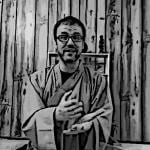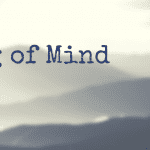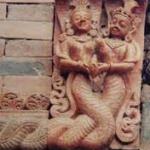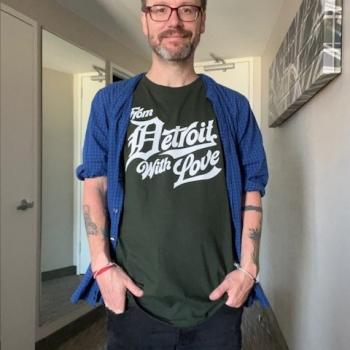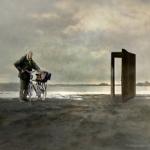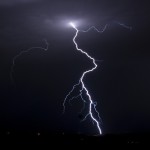I wanted to write about grief and death today.
Some asked me to talk about this, so I’m going to. It’s going to get a little personal too.
This is about grief and death. Ultimately an aspect of this is going to be very personal because of my own experience, and I’m going to relate that to you, but I’m going to start by sharing a quote.
This is from a book called Awake in the World, by Michael Stone. He is a Buddhist teacher, and he happens to have died a few years ago. In his book, he has a passage on death that I wanted to start with.
He says, “In death there is a kind of shift. One thing ceases and another thing starts. Of course, we’re not functioning anymore as the wave in the water, we become the water completely. We move back into the elements. In death, we give completely until we are not functioning relative to the whole; we are the whole. Coming and going, like life and death, are irrelevant phases when we are fully in our lives. The sunset does not die, it becomes a sunrise somewhere else.”
I really like that. I think he’s challenging us to think of death in a different way. Death is obviously a fundamental part of life, and we know that most of, or maybe our whole lives. At least as soon as we start learning things, we learn about death. We spend a lot of time avoiding the subject, or we spend some time pretending it’s not happening, because it’s sort of scary. Right? I think it’s one of these human universals, it’s one thing that we have in common with everyone else on this planet. We’re all getting older, we’re all getting sick, and we’re all going to die.
And in addition to that, we’re also all losing our loved ones. Every one of us is losing our loved ones, and that affects us in several ways. The one obvious way is of course if a loved one dies, we miss them. The secondary way is, when a loved one dies, it’s kind of like a part of our future dies, because our potential future where we were going to interact with them is gone. We have a new future that’s completely independent of this other person because they’re not going to be in our lives.
I think we really struggle with that, and maybe we have trouble putting a name on it, but that’s what it is. It’s a potential future going away. Even if there are times when we lose someone that we’re not even all that close to, we still have a lot of grieving to do. That happens all the time. Again, that’s because of that potential future. Even if we don’t see someone a lot, we were probably going to see them and have some interactions. Any opportunity is gone.
To a degree, that functions in other things as well. I think when you get a divorce, or when someone moves away, a potential future is gone, but it doesn’t have the finality of death.
I’m going to share with you something personal now, and that is this:
When I was fourteen years old, my father was diagnosed with stomach cancer. They attempted surgery to take his stomach out, and when they cut him open, they discovered that the cancer was too widespread. There was no chance of defeating it by taking his stomach out. Taking his stomach out was going to be a greater risk than just leaving it in and blasting him with chemicals. So that’s what they did.
They left his stomach in, they sewed him back up, and if you know anything about cancer, that’s kind of a pretty common thing that happens. So, they sent him home and they got him aggressive chemotherapy. I was fourteen years old, I don’t know if it was stage four or stage three, but that doesn’t matter for the story. What matters is he remained with us for eleven months. Then he fell into a coma, and then he died.
My dad was gone, and my brother was away at college, so it was just me and my mom in the house at that point. The fact is that at that time and for many years after, I didn’t have the tools of meditation practice that I have now, and I didn’t know how to talk about impermanence. I didn’t know how to talk about any of this, and that’s going to come into play later in the story.
My mother had no idea how to handle it, and had no idea how to help me. I have a childhood friend named Jason, and my friend Jason’s dad also lost his father when he was young. So, my mother had this guy – his name was Bill Downing – come and just talk to me about his experience of him losing his father. He didn’t ask me any questions, he didn’t ask me to share, he just told me about his experience. And that really helped me.
I think it’s really helpful to us when other people tell their stories, at least I hope so, and that’s why I’m telling you my story now. Because Bill Downing told me his story of losing his father at a young age, and it made it a little bit easier for me to take. As easy as it could be. The most memorable thing he said to me was this: when he lost his dad, he didn’t cry. He felt sort of numb, instead of what he expected, which was to feel devastated. He just felt sort of numb, like the world was in black and white. That resonated really well with me, because that’s what I felt. I didn’t cry when my father died. I just felt sort of numb, it felt more unreal than tearful.
We’ll move forward in the story a little. I went through high school without a dad.
After high school I went to Johnson County Community College. My first year in college, my mother was diagnosed with lung cancer. She had been a smoker in her earlier life, for many years. She had quit smoking before she got lung cancer, but I guess she quit too late. They said it was inoperable.
So, really it was the same thing. Her treatment wasn’t exactly the same, but she got heavy treatment – chemotherapy and radiation, I think. She also had an oxygen tank, a big square thing that went in our living room and it’s got cords that went in her nose. Really long cords so she could go anywhere in the house, but she was hooked up to this thing all the time when she was home.
I have a really big memory of one night when the machine suddenly stopped working, and we had to call, and a guy had to come make an emergency visit to come check on it and fix it. By the time the guy got there it had come back on. So it was really embarrassing, but it’s a really vivid memory in my mind.
Less than four years apart. My dad died, my mom got cancer, my mom died. There I was, nineteen years old, first year of college. I didn’t know what I would do with my life. I didn’t feel ready to be an adult. But there I was. Now my parents have been gone from my life longer than they were in it.
My mother had planned for this, so she set up a trust
fund for the life insurance money to go into so I could finish college and have that paid for. That was very nice and that had an impact on my life. But I was just a wreck. I didn’t know how to talk about it. I didn’t have a breakdown, I didn’t explode, I was just numb, and sad. I felt broken. I really struggled in college, I almost dropped out because my grades started slipping because I was just sad.
So I went away to college, I went to KU, the University of Kansas. I think people that know me from that period, especially people that have not known me since really, probably would see me as a very sad, very irritable, very depressed all the time, morose person. That is who I was. I was a very negative and pessimistic person because I was carrying all that weight. It’s only in more recent years that I’ve learned that about myself. It deeply affected a large part of my life for a long time. It really had an effect on me. It really made me a negative person, and I’ve only become a positive person recently.
Some people say that college was the best time of their lives. That was not my experience. I was just grieving the whole time, or at least most of it, and that grief sort of infected all of my relationships. It was always there, I was always grieving and struggling. I didn’t have anything to help me get through it. I tried therapy two times, and both times I was not willing to open myself and talk. I struggle with talking to someone I just met anyway, but I was not willing to open myself and talk, so I think therapy was always going to be a struggle.
That’s my story. I didn’t have any tools to deal with that. I sometimes wonder if I had meditation practice, if I had training in attention, if I had the Buddha’s teachings on impermanence – would I have had an easier time? I tend to think I would. I tend to think, “I wish I knew then what I know now.”
Like I said, the most helpful thing to me was Bill Downing came to my house and just talked to me about his dad, and how his dad had died. That helped me because it made me feel like I’m not alone, because his experience was like mine. The truth is, none of us are alone. None of us are alone, we’re all dealing with this exact thing. People we love die. People we love die, and then they’re gone, or at least it feels like they’re gone.
I could give you an answer that says, “We can take
comfort in this, or we can take comfort in this,” but I really wanted to tell my own story before I do that.
We can take comfort in a few things. One is reminding ourselves that we’re not alone, we’re all in this together. I wish we would remember that when we feel like being mean to each other. I think that when we have conflicts with other people, it’s sort of like having a fight inside a burning house. We’re in it together, we’re burning together.
We’re all burning.
There are diverse views on this. Some people like to say that when you die your spirit goes somewhere else, or when you die your spirit’s born again, and things like that. I have no opinion on the subject. I don’t. What I know is that when you die, I don’t see you anymore. However, that said, there’s another way we can think about this.
I’m going to share a quote from another book. This is called No Death, No Fear by Thich Nhat Hanh. If you’re struggling with death or grieving, this is a book I recommend for sure. He wrote this about when his mother died.
He wrote,
“Walking slowly in the moonlight through the rows of tea plants, I noticed my mother was still with me. She was the moonlight caressing me as she had done so often, very tender, very sweet. Wonderful. Each time my feet touched the earth, I knew my mother was there with me. I knew this body was not mine, but a living continuation of my mother and my father, and my grandparents, and great grandparents. Of all my ancestors, those feet that I saw as my feet were actually our feet.
Together my mother and I were leaving footprints in the damp soil. From that moment on, the idea that I had lost my mother no longer existed. All I had to do was look at the palm of my hand, feel the breeze on my face or the earth under my feet, to remember that my mother is always with me, available at any time.”
I think that says a lot, and I wish I had a book like that, I wish I had access to teachings like that when my father passed away and when my mother passed away. If I’m really honest about my journey, I do think losing my parents led me to become a seeker, which led me to doing this thing I’m doing now. I see a direct cause and effect relationship there.
So, what is he saying? He’s saying his connection to his mother, thinking about that connection, reminds him that she’s not really gone. If we shift our thinking, we can come to understand – no one is ever really gone. That’s really hard to tell ourselves.
In the case of my parents it’s very obvious. My parents came together and they created me, I have a lot of their traits. I have their genetics, right? But I think it applies even beyond that. I think that the people we interact with help shape who we are. That doesn’t just apply when we’re forming, when we’re young in our formative years, but really other people influence us all the time. For good or ill, we’re shaped by other people. We are shaped by big interactions and by little ones. In that sense, no one’s ever gone.
In the Michael Stone book I referenced earlier, he said, “We’re not waves anymore, we’re the water.” That is a common way of describing human beings in Buddhism, no self. Our identity is not as solid as we think it is, we tend to think we’re separate from everything else. There’s a description of people in
Buddhism as waves in the ocean, so the ocean is everything and we are waves. We come out of the ocean, we exist for a while, and then we’re gone. But we’re always part of the ocean, we’re never really separate from it. We just tend to think we are, and we tend to think other people are.
We’re all part of the same whole. If we can think of that, if we can shift our minds and think of connectedness, connection, interbeing, the way we all influence each other and relate to each other. If we can turn our minds on that and reflect on that, I think that can help us with our grief. We’ve just got to remember that if you’re thinking about them, if you’re thinking about someone and how they influenced your life and how much you love them, and events you shared, then they’re not gone. They’re not gone, because no one ever goes.
No one ever goes.
